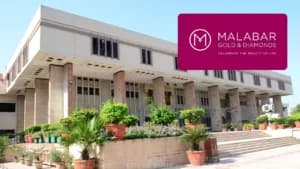The Supreme Court of India is set to hear a crucial case in April 2025 concerning whether political parties should be classified as "public authorities" under the Right to Information (RTI) Act, 2005. This long-standing issue has been pending before the court for over a decade.
The case, which has significant implications for electoral transparency, was recently mentioned before a bench comprising Chief Justice of India (CJI) Sanjiv Khanna and Justice Sanjay Kumar. The petitioners argue that political parties wield substantial influence over the legislature and executive, making them accountable to the public.
Background of the Case
Advocate Prashant Bhushan, representing the Association for Democratic Reforms (ADR), pointed out that the case has been awaiting resolution for ten years. Senior Advocate Gopal Sankarnarayanan also appeared before the court in support of the petition.
Bhushan emphasized that the case is directly linked to the Supreme Court’s recent ruling in the Electoral Bonds Case, where the Constitution bench ruled that anonymous electoral funding violates the fundamental right to information under Article 19(1)(a) of the Indian Constitution.
“It is covered in a way by your lordship’s judgment in the electoral bonds case, where your lordships have said that it is absolutely essential that voters have the right to get information about parties' funding.” – Advocate Prashant Bhushan
Acknowledging the importance of the issue, the Supreme Court directed that the case be listed for hearing in the week starting April 21, 2025.
Previous CIC Verdict on Political Parties Under RTI
The Central Information Commission (CIC) had already ruled in 2013 that political parties should be brought under the RTI Act. In its June 3, 2013 order, the CIC declared six national political parties as "public authorities" under Section 2(h) of the RTI Act. These parties included:
- Indian National Congress (INC)
- Bharatiya Janata Party (BJP)
- Communist Party of India (Marxist) – CPI(M)
- Communist Party of India (CPI)
- Nationalist Congress Party (NCP)
- Bahujan Samaj Party (BSP)
The CIC stated:
“We hold that INC, BJP, CPI(M), CPI, NCP, and BSP have been substantially financed by the Central Government under Section 2(h)(ii) of the RTI Act. The criticality of the role being played by these political parties in our democratic setup and the nature of duties performed by them also point towards their public character, bringing them in the ambit of Section 2(h).”
However, despite this ruling, political parties have refused to comply, arguing that they are private entities and not "public authorities."
Read Also:- Bombay Stamp Act Supreme Court Rules Agreement to Sell with Possession Attracts Stamp Duty
The case has seen multiple legal perspectives, including several Delhi High Court rulings that classified different entities as "public authorities" under the RTI Act. Some significant cases include:
- Chandigarh Club v. Pradeep Bhanot – Chandigarh Club was brought under the RTI Act.
- India International Centre v. Amrit Mehta – The court ruled that IIC, which leased land from the government at nominal rates, is a public authority.
- National Stock Exchange (NSE) Case (2010) – Then-Delhi HC Judge Sanjiv Khanna ruled that NSE falls under the RTI Act.
- Olympic Association Case – Justice S.R. Bhat held that the Indian Olympic Association and Sanskriti School are public authorities under RTI.
Despite these rulings, in 2023, the Delhi High Court ruled that certain investigative reports by the Central Bureau of Investigation (CBI) were exempt from RTI disclosure under Section 8(1)(h) of the Act.
Given these conflicting decisions, the Supreme Court has asked for clarification on the status of pending appeals before it on similar matters.
The Supreme Court is currently dealing with two petitions:
Association for Democratic Reforms (ADR) & RTI Activist Subhash C. Agrawal – Filed in 2015, this petition argues that political parties exert immense control over legislators and government policy. Given that they receive massive public donations and are exempt from taxes, they must be accountable. The plea demands complete financial transparency of political parties.
Advocate Ashwini Kumar Upadhyay – Filed in 2017, this petition highlights the anti-defection law, which gives political parties significant power to disqualify elected MPs and MLAs. It also refers to Section 29C of the Representation of the People Act (RPA), which mandates that political parties must report their donations to the Election Commission, further proving their public character.
“The Tenth Schedule of the Constitution vests great powers with the political parties inasmuch as they can oust even an elected member – whether Member of Parliament or Legislature of State Assembly – from the party if he steps out of the party line.” – Advocate Ashwini Kumar Upadhyay
The Supreme Court has directed both parties to submit written arguments, limited to three pages, within six weeks.
Case Details : ASSOCIATION FOR DEMOCRATIC REFORMS vs. UNION OF INDIA CABINET SECRETARY| Diary No. - 16902/2015 and connected matter














